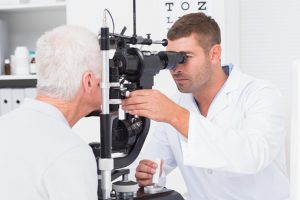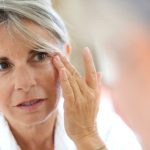 Short-term effects of alcohol can impair and alter vision, but excessive alcohol can greatly impact eyesight and vision, leading to a condition referred to as toxic amblyopia. Aside from alcohol’s effects on vision and eyes, it has been long known that excessive alcohol can have lasting detrimental effects on the body as a whole.
Short-term effects of alcohol can impair and alter vision, but excessive alcohol can greatly impact eyesight and vision, leading to a condition referred to as toxic amblyopia. Aside from alcohol’s effects on vision and eyes, it has been long known that excessive alcohol can have lasting detrimental effects on the body as a whole.
The National Institute on Alcohol Abuse and Alcoholism reports that excessive drinking can lead to changes in the brain, heart, liver, pancreas, immune system, and even contribute to cancer. Years of alcohol consumption impairs many of the body’s functions resulting in organ failure. Thus, is it so important to limit or even cut out alcohol if necessary.
Excessive alcohol consumption also affects your eyesight
Advertisement
 Excessive alcohol consumption can have temporary and long-term effects on your vision. Temporary effects of excessive alcohol and eyesight result in blurry and distorted vision. But it is the long-term effects of excessive alcohol consumption you should be more concerned with.
Excessive alcohol consumption can have temporary and long-term effects on your vision. Temporary effects of excessive alcohol and eyesight result in blurry and distorted vision. But it is the long-term effects of excessive alcohol consumption you should be more concerned with.
As mentioned, the condition is referred to as toxic amblyopia, and it can lead to permanent vision loss and blindness.
If you only have a glass or two a night you probably don’t have to worry about your vision becoming permanently lost due to alcohol. But if you exceed the recommended guidelines of alcohol consumption and are often binge drinking, you could be putting your vision and eyesight in serious danger.
But why exactly is alcohol consumption a threat to your vision? Well, alcohol slows down the communication between neurotransmitters in the brain. Neurotransmitters are necessary for the brain to communicate with the rest of the body and vice versa. A delayed communication between the brain and the eyes causes the muscles in the eyes to weaken and lose coordination. This leads to double or distorted vision.
Excessive alcohol also slows down the reaction time of the pupils, meaning they cannot dilate and will constrict to allow in appropriate levels of light. In this situation, the ability to see colors and shades becomes impaired.
Other side effects of alcohol on your vision include:
- Light sensitivity due to migraines
- Red or bloodshot eyes due to alcohol and swelling blood vessels in the eyes
- Rapid eye movement – involuntary eye movement
Additional side effects of alcohol on vision and eye sight
 Aside from the side effects listed above, there are many other ways that excessive alcohol affects the eyes.
Aside from the side effects listed above, there are many other ways that excessive alcohol affects the eyes.
Short term:
- Eye twitching
- Increased dryness
- Decreased contrast sensitivity
Long-term:
- Increased cataract formation
- Increased risk of age-related macular degeneration
- Decreased vision due to lack of vitamins
- Optic neuropathy – painless vision loss
Preventing alcohol-related eyesight problems
Advertisement
Alcohol can have many detrimental effects on the body as a whole – even apart from contributing to vision loss. Cutting back on your alcohol intake is a good way to start being healthier and protect your eyesight. Here are some tips in to minimize your alcohol consumption and help prevent eyesight problems.
- Make a plan: Start cutting down by creating goals to reach, like the number of drinks you want to cut down to and by what date.
- Set a budget: Budget how much money you will spend on alcohol – keep it low so you don’t over-buy.
- Let others know: Let friends and family know you are cutting back on alcohol, so they can offer support.
- Lower the alcohol percentage: Information about alcohol content can be found on the bottle or can.
- Stay hydrated: Ensure you are drinking plenty of water to flush out toxins and reduce dizziness and headaches.
- Take a break: Don’t drink daily, start with one day of not drinking and move your way up to all seven days.
Benefits of cutting back on alcohol
Not only will you be protecting your eyesight and your whole body, but there are other benefits you can observe as well. Benefits of cutting down on alcohol include:
- Happier mood
- More energy
- Improved sleep
- Improved behavior – less aggression
- Heart protection
- Stronger immune system
With all these benefits you may wish to start cutting down on alcohol as soon as possible. If cutting back is difficult for you, don’t be afraid to ask for help or seek out therapy or a support group.
